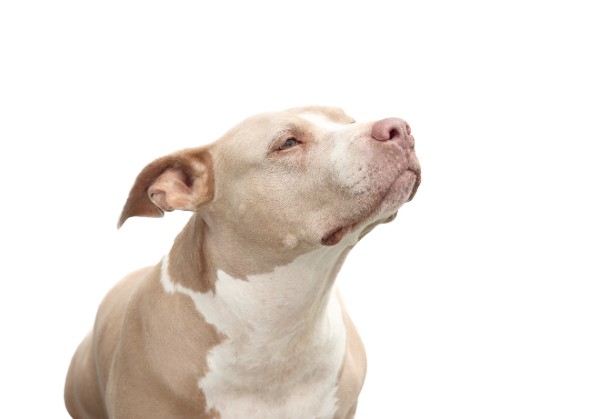Why Does Your Dog Have Bad Gas?

DogFoodAdvisor is reader supported See how
Dog Food Advisor is 100% impartial and is never paid to promote any brand. But if you buy using links on this page, we may earn a referral fee.
When someone has bad gas, the cliché goes that they “blame it on the dog”. There’s a reason for that — dogs can let out some awful smells.
But is there more to your dog’s bad gas than an age-old punchline?
Diet has a huge part to play in keeping your dog’s gut healthy, and bad diet choices can cause your dog to have bad gas. So that bad gas can be a sign of both a bad diet and bad gut health.
We spoke to veterinarian Dr. Hannah Godfrey, a regular blog contributor for 5-star-rated dog food Raised Right. We asked her to explain the reasons why your dog might have bad gas.
Here’s what she had to say…
Why might your dog have bad gas?
“Some dogs are a little bit windy normally, and just like humans pass wind, it’s very normal for dogs too. However, excessive or foul-smelling flatulence can be a sign that something is wrong. Not all dog foods are created equal, and what your dog puts in their mouth can directly affect their health.
“Fiber is important for forming stool bulk and keeping the intestines healthy, while lots of different proteins could trigger an allergy leading to flatulence, diarrhea, or itchy skin. It’s also worth noting that, while your dog needs some carbohydrates for energy, carbohydrates get broken down into glucose (sugar).
“Too much glucose is involved in the process of inflammation throughout the body, meaning that all chronic inflammatory conditions use glucose. By feeding your dog a diet that’s low in carbohydrates, you won’t just keep them trim and potentially reduce their risk of diabetes, but you will also likely reduce inflammation.”
What other symptoms might you notice?
“Although gas can be a symptom on its own, it’s also quite common to see other gut symptoms at the same time. If your dog has bad gas and is vomiting, it could mean that they have an infection, a food allergy, gastritis (an inflamed stomach), or even pancreatitis. If your dog is acting unwell or isn’t eating or drinking, you should seek veterinary advice.
“Like vomiting, diarrhea could be caused by an infection or a food allergy, but other causes include enteritis, colitis, and parasites. Sometimes, if our dog’s stomach or intestines are irritated, we might hear gurgling sounds from their belly. This is usually the sound of gas pockets and digested food moving around excessively due to increased peristalsis of the intestines.”
What does it mean if your old dog has bad gas?
“There are lots of reasons why old dogs might have bad gas. Firstly, they may not have the muscular control of their rear end the way that they used to, which might mean incontinence or increased flatulence due to wind accidentally escaping. Your old dog’s gas could also be caused by dietary changes, infections, parasites, and inflammation, and you might find that your old dog’s intestines become more sensitive with age.”
How can you help your dog with bad gas?
“Many cases improve after a few days of feeding a bland diet. If your dog’s current food seems to cause them to have gas, it might be worth switching to a low-carb limited ingredient diet that contains plenty of fiber. Whenever you change your dog’s diet though, make sure you do it gradually to give their gut time to adapt.”
Final word
The Dog Food Advisor does not accept money, gifts, samples or other incentives in exchange for special consideration in preparing our reviews.
However, we do receive a referral fee from online retailers (like Chewy or Amazon) and from sellers of perishable pet food when readers click over to their websites from ours. This helps cover the cost of operation of our free blog. Thanks for your support.
For more information, please visit our Disclaimer and Disclosure page.



